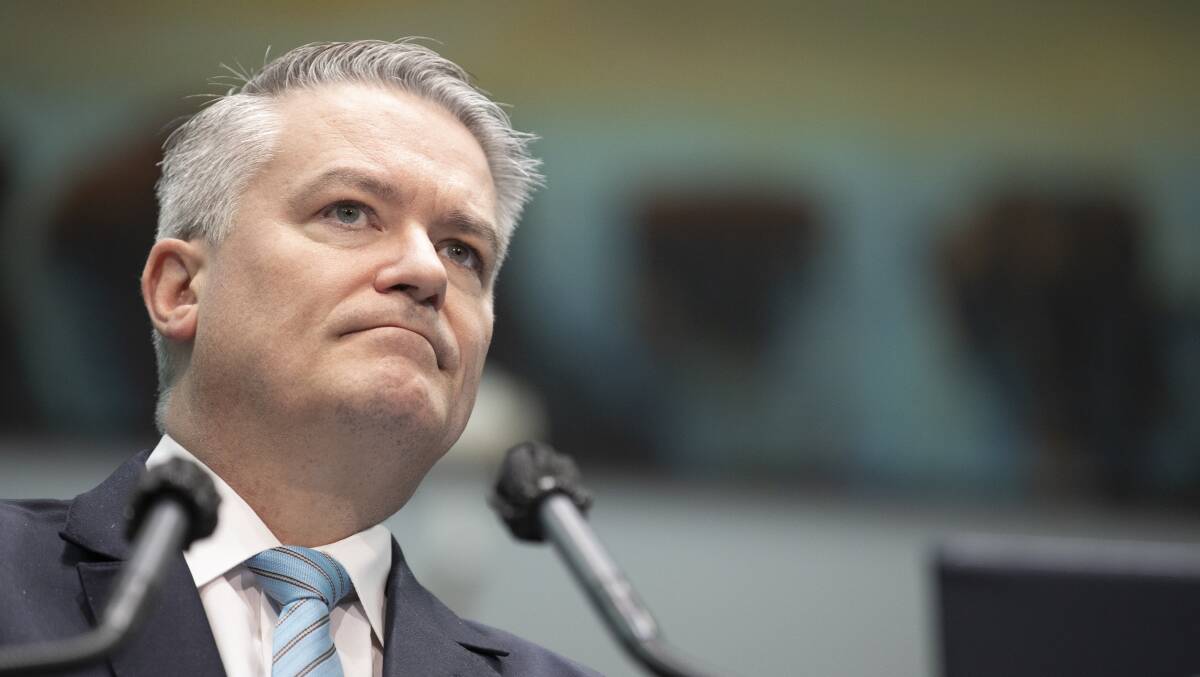
Former finance minister Mathias Cormann has urged countries to work constructively with China and strive toward having "the best possible relationship" with the world's second largest economy.
Subscribe now for unlimited access.
or signup to continue reading
The secretary-general of the Organisation for Economic Co-operation and Development said there was inevitably going to pressure points but the key was to "work through those in as positive and constructive a way as possible" at a Lowy Institute event on Wednesday evening.
It follows comments by his former colleague Defence Minister Peter Dutton, who was accused of stoking tensions with China on Tuesday after comments made about Taiwan.
Mr Cormann admitted the political and economic system in China was "different" and that lines needed to be drawn in the sand but the hope was the issues could be worked through constructively.
"I think that that's going to require appropriate balancing, you know, for some time to come," he said.
"Ideally, we will end up with an appropriate, sustainable accommodation in the context of an international rules-based order, where we can continue to live together harmoniously, peacefully and pursuing the further expansion of global trade to mutual benefit."
Mr Dutton accused Labor's foreign affairs spokesperson Penny Wong on Tuesday of being weak against China's increasingly assertive posturing in the region.
"I noticed the acting Chinese ambassador has been attacking Australian values and Senator Wong doesn't stand up for those values, instead, she folds in a fit of weakness," he told parliament.
Senator Wong had accused the senior minister of amping up the idea of a war with the superpower earlier in the day, adding it was "the most dangerous election tactic in Australian history".
But Mr Dutton hit back at the claims, saying the Labor Party was acting "weak" on national security.
"When it comes to the defence of our country, I can assure this weak leader of the opposition, you don't deter an adversary and you don't maintain peace in our region from a position of weakness. That is what he is advocating," Mr Dutton said.
READ MORE:
Mr Cormann also addressed his former party's recent commitment to net zero emissions target by 2050.
He said it was a "very significant" shift but added Europe was still considering its implementation of putting a price on carbon imports from countries without ambitious climate change targets.
"We need Australia to reduce emissions in a way that helps reduce emissions for the world," he said.
"We don't need Australia to reduce emissions in a way that shifts those emissions along with activity and jobs into the neighbourhood where, for the same level of output, emissions would be higher.
"The worst thing in terms of our overall objective would be if Australia were to make decisions that shift activity, jobs and emissions into other parts of the world where emissions are going to be higher and the global emissions outcome would be worse."
The former finance minister tendered his resignation in November last year and was subsequently elected into the economic intergovernmental body's top position.
When asked by Lowy Institute executive director Michael Fullilove how similar his former and current roles were, Mr Cormann responded it gave him some skills but he now had the freedom to speak more openly.
"I guess, I've got the luxury now of being able to think more freely, without having to be too directly concerned about the immediate political execution," he said.
"I can think more freely about what would be the ideal way forwards, then engaging with member governments and respecting the fact that member governments, elected governments of the day, have to make judgments on the realistic political timetable within which necessary and important reforms can be pursued."


